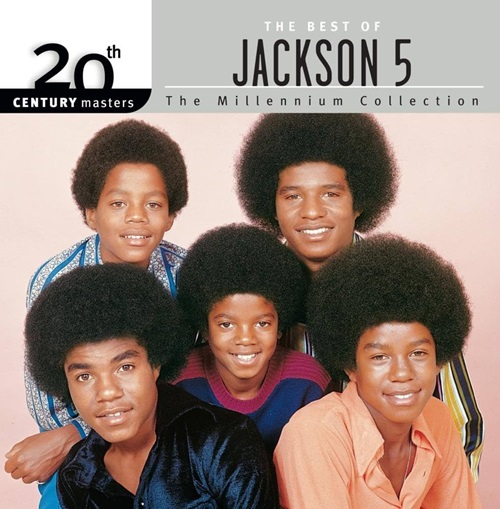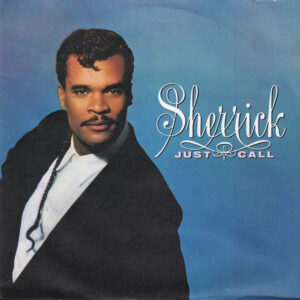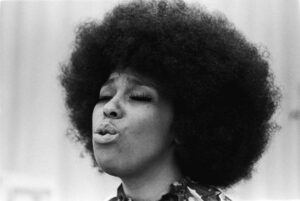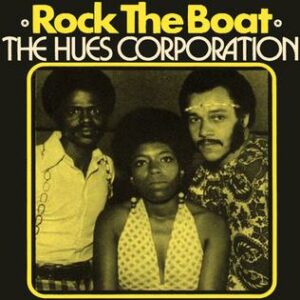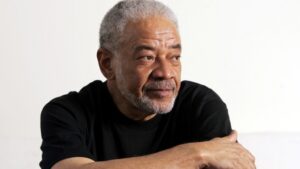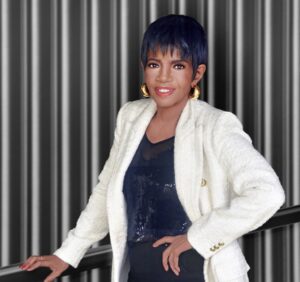For the period, 1970-74, there was no Soul group – in fact no musical act in the world – that was bigger than the Jackson 5. The five brothers, Jackie, Tito, Jermaine, Marlon and Michael Jackson were household names among people of every age and race, and set the stage for dozens of child and teenage groups that would later emerge (though none would ever match the intense popularity the Jackson 5 enjoyed).
Amid the rough steeltown of Gary, Indiana, the Jackson 5 was a dream of guitarist Joe Jackson, the patriarch of a family of photogenic, extremely talented children. Realizing the talent resident in his five boys, he became a tough taskmaster, working on their musicianship, their singing and their dancing with the goal of creating a tight, soul singing group in the mold of the Temptations, but composed of a group of teen and pre-teen brothers. By 1966 the Jackson boys were winning local competitions and by the next year, when Michael was only 9 years old, they won at the legendary Apollo Theater in Harlem, bringing them their first attention outside of the Midwest. Over the course of the next year word about the boys from Gary spread, and in 1969 Motown artist Bobby Taylor saw them perform and soon they were summoned to Detroit by Motown leader Berry Gordy, Jr., who signed them almost immediately.
Gordy soon had the Jackson Five touring with Diana Ross and working with the new Motown songwriting team The Corporation (whose member, Freddie Perren, would later write for Tavares, Peaches and Herb and Gloria Gaynor, among others). The J5’s first single, “I Want You Back,” was a monster, and began a string of four straight number one Pop and Soul singles for the group from their first two albums, including “ABC,” “The Love You Save,” and the ballad “I’ll Be There” (one of the biggest songs of 1970). At a stressful time of national concern about Vietnam and changes in society, the fresh exuberance of Michael Jackson’s incredible young voice, the slick dance moves of the handsome siblings and The Corporation’s extremely infectious compositions simply took the U.S. and world by storm, and the new decade’s first supergroup was born.
The group’s exposure reached a peak in 1971, when the “Jackson Five” cartoon hit the Saturday morning airwaves, and over the period 1970-73 the J5 released an amazing nine studio albums and toured tirelessly (accompanied in 1971 by a virtually unknown new soul/funk group known as the Commodores). Despite objections by Joe Jackson, Gordy was determined to push Michael as a solo artist, and soon he and Jermaine had solo albums, with Michael scoring major hits with “Got to Be There,” the ballad “Ben” and the upbeat cover of “Rockin Robin.” A combination of the passing of time, Gordy’s distraction into the world of movies (rather than music), group fatigue and adolescent voice changes led to a decline in the J5’s popularity in the mid-70s, though they scored a major hit with 1974’s “Dancing Machine.”
Frustrated, in 1976 the group departed Motown for Epic Records, leaving Jermaine (who was married to Berry Gordy’s daughter Hazel) behind for a moderately successful solo career and replacing him with talented younger brother Randy. Now renamed “The Jacksons” (Motown had copyrighted the “Jackson 5” name), they scored in 1976 with “Enjoy Yourself,” but otherwise continued their career slide for the next two years. Then in 1978, as the group members began taking a more active role in the creation of their records, they found a new credibility in the burgeoning dance music world with such songs as “Blame It On the Boogie” and “Shake Your Body (Down to the Ground).” But while their popularity and creativity appeared to be again on the rise, nothing prepared them for the immense success of brother Michael’s 1979 solo effort, Off the Wall. Working with producer extraordinaire Quincy Jones, Michael created that year’s best dance album – yielding four top 10 hits – and paved the way for his 1982 Thriller, until recently the biggest selling album of all time.
Michael’s solo triumph created increased buzz for the group’s 1980 release, Triumph, which featured the hit “Lovely One” but was overall a disappointment. By the time of the Jacksons’ 1984 Victory album, Michael was the world’s biggest musical star and the album appeared more of a family obligation than a joyful reunion (though for the first time all 6 brothers were involved). It made the top 10 because it had to, but was a creative dud and was quickly forgotten. The group then split up, with Jermaine resuming his solo career on Arista Records and Michael continuing his quest to be the King of Pop while engaging in increasingly erratic, enigmatic behavior that would overshadow his music for the next quarter century until his tragic death on June 25, 2009.
Jackie, Tito, Marlon and Randy reunited with their children, nieces and nephews for one final gasp, 2300 Jackson Street, an album that came and went quickly in 1989. The act then disbanded for good, reuniting onstage only for a pretty good performance at a Michael Jackson tribute television special in 2003. The six brothers were planning another reunion for 2010, but Michael’s tragic death ended those plans. However, the remaining Jackson brothers have toured regularly over the past decade.
While the events of the past 30 years, particularly the tabloid stuff that became Michael Jackson’s life, have tended to overshadow the work of the Jackson 5, one only has to listen to the group’s music from the early 70s to realize what a unique and amazing package of singing and performing talent that this young act brought, and the road the Jackson Five paved for a generation of “boy bands” that would pop up in waves over the next twenty-five years.
By Chris Rizik
